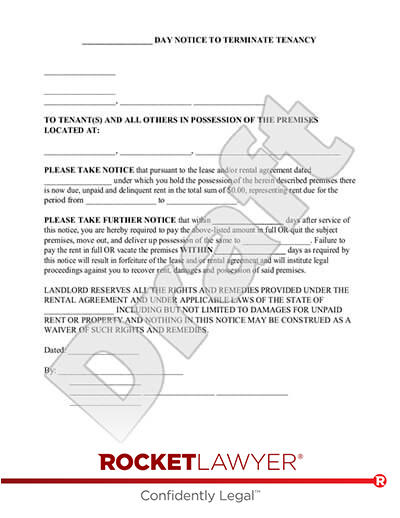How does the end of the eviction moratorium affect landlords?
The CDC eviction moratorium prevented landlords in every state from evicting tenants for nonpayment of rent if they had a financial hardship due to the COVID-19 pandemic. With the end of the moratorium, many landlords can now file for eviction. In states that allowed landlords to file for eviction but put the cases on hold during the moratorium, those cases can now proceed.
The Supreme Court's ruling ended only the federal moratorium. States may also have their own eviction moratoriums, but most of the remaining state moratoriums are set to end by October. New Jersey has extended limited protections for residents with low or moderate incomes through December 31, 2021. New York also has limited protections in place through January 15, 2022, if the tenant can provide evidence of their COVID-19-related hardship. If you are a landlord in a state or city that still has an active moratorium, or programs that effectively keep you from evicting a tenant for nonpayment of rent, you may need to either wait to evict or follow the rules or restrictions that are still in effect.
With the end of the moratorium, courts are likely seeing a much higher volume of evictions than normal. Some courts are also still working under COVID-19 health restrictions, such as by limiting courtroom capacity or using virtual hearings. This means the eviction process may take much longer than it normally would.
How can I recover lost rent?
Landlords may run into problems collecting back rent once tenants fall behind on their payments. The nonpayment of rent usually leads to an eviction, which allows a landlord to rent the unit to a new tenant. Doing so might cut the landlord's losses, but any delay in the eviction process can lead to financial hardship. As a landlord, you still have several options for recovering lost rent:
- Raise the current rent.
- Notify the tenant that you will pursue an eviction if they do not pay the back rent in full by a certain date.
- If a tenant wants to stay and you want to avoid the legal costs of eviction, you may want to offer a payment plan. If you decide to go this route, check your state or local laws, or ask a lawyer, to see how accepting a full or partial payment, or setting up a payment plan, can affect your right to evict.
- You can hire, or sell the debt to, a collections agency.
- You can sue the tenant, or their co-signer, without seeking an eviction.
If you file for an eviction, in addition to ordering the tenant to move out, a judge may order the tenant to pay the amount owed, as well as interest, and potentially your court costs and attorneys fees if allowed by your lease or local law.
Is it better to try to evict a tenant or work things out?
Many tenants who lost their jobs or had their income reduced during the pandemic are now back to income levels that support their current rent. However, they may still be struggling to catch up on missed payments. If you believe the tenant's financial hardship has passed and they are otherwise a good tenant, you may wish to keep them as a tenant and work with them to collect the missed payments.
One way to do this is by using a Rent Payment Plan or Late Rent Payment Agreement. A formal agreement allows you to reinforce that any waivers of deadlines or penalties are only temporary. It also allows you to protect your right to evict in the future if necessary, and sets up a legal solution if the tenant fails to make the catch-up payments as agreed.
It's also helpful to make sure your tenant has taken advantage of any rental assistance programs that may be available in your area.
Can I legally kick a tenant out without a formal eviction?
It is almost always illegal to kick a tenant out without a formal eviction. You may ask a tenant to move out, but you cannot take actions to force them out on your own, such as changing the locks or cutting off the utilities. If the tenant does not agree to move out, you will likely need to go to court to evict them. Even if you have provided a Landlord's Notice of Nonrenewal to a tenant at the end of their lease, you generally cannot physically force them out at the end of their lease and may need to evict them if they do not leave.
If a tenant misses a payment, the first step is usually sending a Late Rent Notice, though some landlords prefer to just send an Eviction Notice. In some states, if you want this notice to start the eviction process, you may need to include specific language in it, warning the tenant of your right to evict them. You may want to complete an Eviction Process Worksheet before getting started to make sure you are prepared.
Generally, to evict a tenant, you need to provide the tenant a formal Eviction Notice that follows local or state laws, then file an eviction lawsuit and go to court. After you get a judge's order to evict, you may request local law enforcement physically evict the tenant if they do not leave voluntarily after the judge issues the eviction order.
To get help with evicting a tenant or working out a legal agreement, ask a lawyer.
This article contains general legal information and does not contain legal advice. Rocket Lawyer is not a law firm or a substitute for an attorney or law firm. The law is complex and changes often. For legal advice, please ask a lawyer.
